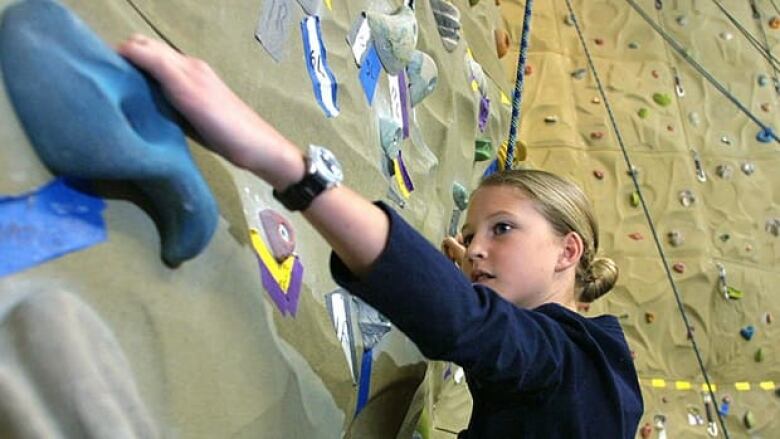Exercise for more than looks, teens tell teachers
Researcher surprised by insights of young people on stress relief and other benefits of working out

It's not necessarily washboard abs that may motivate teens to get physically active but how much better they feel, a Canadian study suggests.
Recognizing that more than 26 per cent of childrenin Canada are considered overweight or obese and that only seven per cent of youth get enough vigorous-intensity activity according to the 2007-2009 Canadian Health Measures Survey, researchers set out to understand how sports and physical activity influence teens' behaviour.
James Gavin, a psychologist and professor in the department of applied human sciences at Concordia University and his team talked to 1,096 adolescents aged 13 to 19 from English-language public and private high schools in Montreal about their motivation for playing sports and getting physical activity.
"We were surprised by that degree of insight of what one gains from physical activity," Gavin said in an interview Tuesday.
Instead of talking about buff bodies and physical attractiveness, the focus group participants of seven to 10 phys-ed students talked extensively about the benefits that physical activity offers for self-esteem, self confidence, leadership and learning, the researchers found.
Gavin said the students focused on the non-physical dimensions of sport and exercise that those in the exercise psychology field have talked about fordecades, such as reducing stress and dealing with mood swings.
Physical activity sales pitch
The adolescents describedfeeling better about themselves, feeling calmer andbetter able to do their homework.
"I think the Western world in general is still selling physical activity in terms of what it will do for how you look and how your body functions as opposed to how your whole being functions," said Gavin.
But the students were saying they wanted to know how they can reliably get stress reduction benefits and improved self confidence.
The teens also commented on physical benefits of exercise like flexibility and endurance.
Responses were equally common among boys and girls.
The students were also asked what suggestions they would have for their physical education instructors. Their answer? More variety, choice and flexibility.
Gavin suspects the findings would apply elsewhere in Canada, but this wasn't tested.
He also hopes to look at the motivation to sustain physical activity among baby boomers.
The study, published in the April-June issue of SAGE Open, was funded by the Social Sciences and Humanities Research Council.
With files from CBC's Amina Zafar












_(720p).jpg)


 OFFICIAL HD MUSIC VIDEO.jpg)
.jpg)



























































































